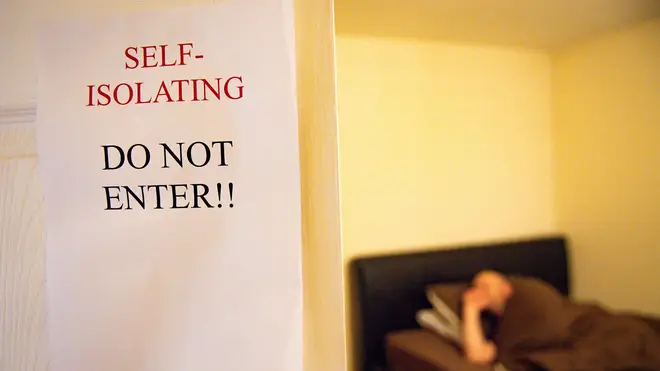
Tonight with Andrew Marr 6pm - 7pm
13 March 2020, 15:26

LBC's Senior Reporter Matthew Thompson has explained the rationale behind the government's response to the coronavirus outbreak with the help of an epidemiologist who is currently working on containing its spread.
You might have some questions today. Why isn’t the government banning gatherings and closing schools? Why isn’t it doing everything it can to stop the spread of the coronavirus? What on earth is herd immunity?
This morning I spoke to an epidemiologist who is currently working on the spread of Covid-19.
Based on his guidance, here is my best explanation of what is going on, and the possible rationale behind the government’s response to the coronavirus so far.
Any infectious disease has a basic reproduction number: the number of people that one infected person will go on to infect (known as R0)
Let’s say that number is three. So if I have the disease, I’ll infect three other people on average.
But if two out of three of those people become immune, I can’t infect them. So where once I’d have infected three people, now I only infect one. The epidemic can’t grow.
And if you can get R0 below one, so that each infected person infects less than one person, the disease eventually fizzles out.
Take measles as an example. We started to get measles outbreaks because the “anti-vax” movement tipped the balance so that R0 rose above one, and each infected person started infecting more people.
Now you can get to the magic tipping point by creating what’s know as herd immunity, either through vaccinating or letting people catch the disease and developing their own antibodies.
Or you can do it another way. You can take preventative measures (social distancing, hand washing) so I as the carrier simply don’t infect two of the three people I’d otherwise have infected. This is better thought of as herd protection.
The trouble with herd protection, rather than immunity, is that it only lasts as long as the controls are in place. Once they’re lifted, you’re vulnerable to another epidemic.
Longer term, therefore, achieving immunity is arguably a better solution. That’s the mathematical argument. It doesn’t make value judgements about whether we should accept that some people will die.
And arguably, there is much we can do so that fewer people die whilst we wait for a vaccine, for example. Again, it comes back to the many benefits of “flattening the curve” - slowing the spread of coronavirus so that there is no huge spike in the number of cases, but rather a longer, drawn out period of infection.
As one epidemiologist said, in some ways the better our response to this crisis, the longer it will last.